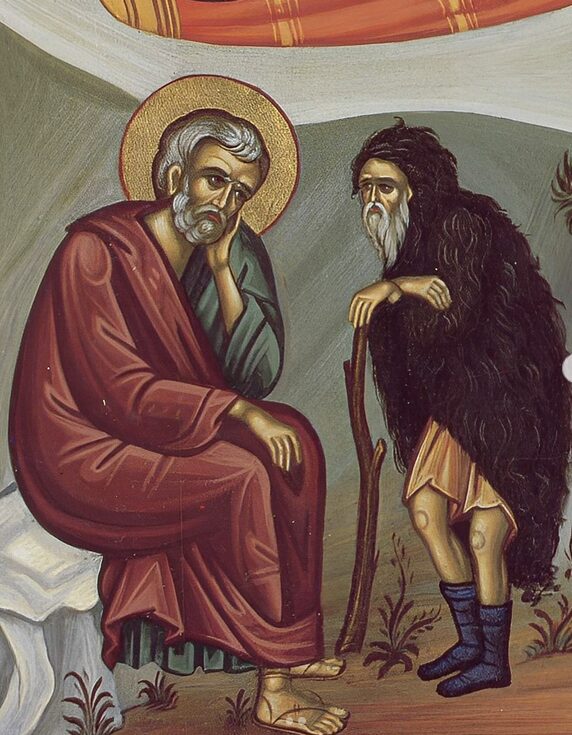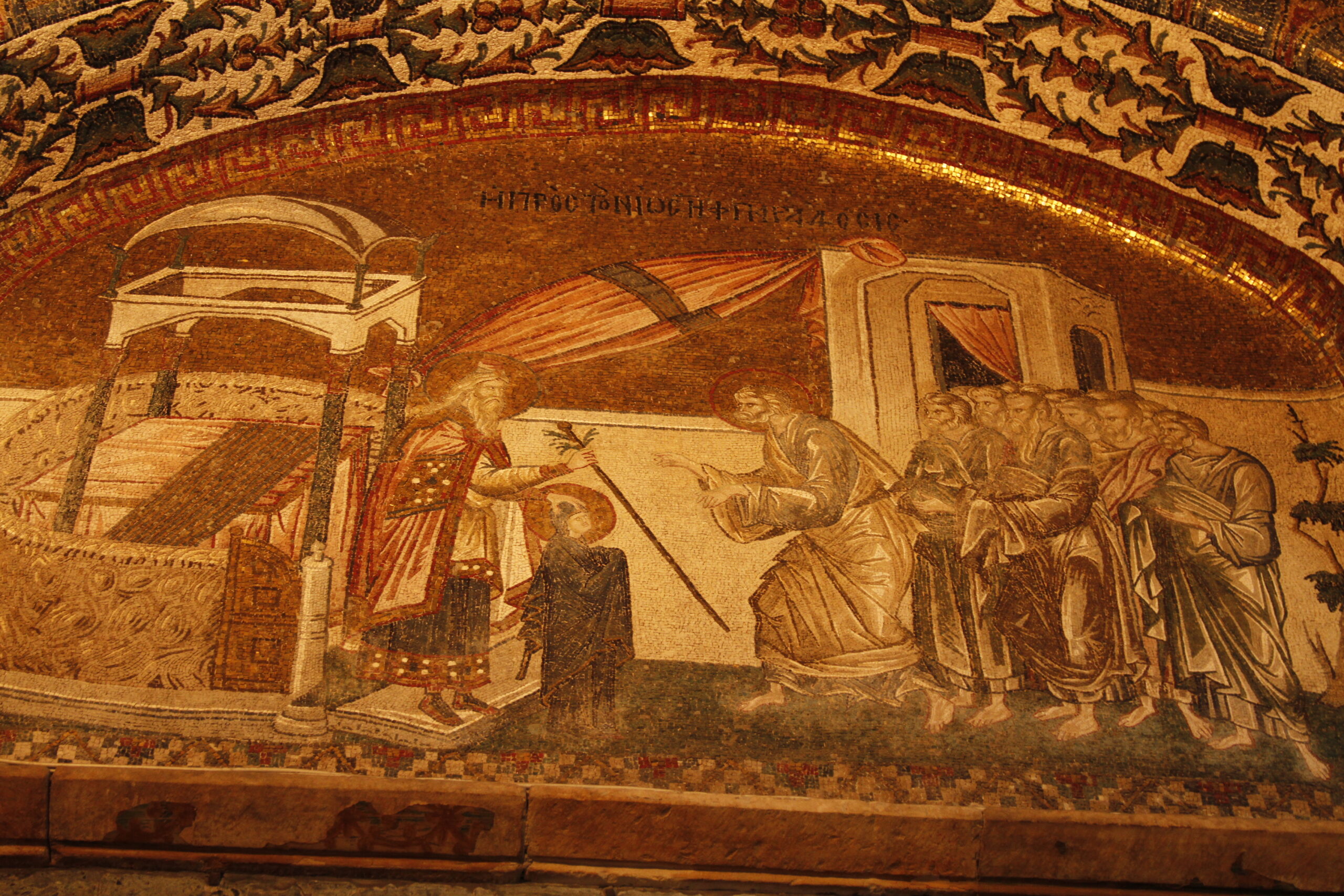In Byzantium and the Orthodox East, Joseph is a silent figure drawn into an unseen and decisive battle. Often he is painted apart from the Virgin and the Child, sitting, pensative, while an old bent man – the tempter – whispers to him. This is the visual memory of a real contest, the trial of the vow he made. It speaks to the warfare of the logismoi, intrusive thoughts that press hardest when the prayer is deepest, and that become most violent when the symbol is about to take flesh in the world. Joseph’s life embodies this truth. The Incarnation is present before his eyes, under his roof, in the womb of the woman entrusted to him, and the temptation is not abstract. It is aimed at dislodging his obedience at the last moment, to fracture the vessel before the fullness is born.
Joseph guards Mary, but never touches her. He places his own volition under the yoke of a greater Will. When he is told in the dream to take Mary as his wife, he obeys. When he is told to rise in the night and flee to Egypt, he obeys. His is the obedience of the dreamer who does not treat the dream as an ornament and sees it as command. His humility is such that the Gospels record no word from him; his speech is action and his faith is the architecture of the house where the Divine Child grows. In this week of the Dormition, when the Mother is crowned in the heavens, his role is worth remembering; he made her earthly crown possible.
I. The Contest of the Vow
The Orthodox icon of Joseph with the tempter is a lesson in spiritual physics. The devil in these scenes is far from grotesque, but appears as an old man that could be taken for a pilgrim or neighbour. This reflects the manner of temptation: it comes clothed in plausibility, offering a reasonable argument, a justification for surrender. In Joseph’s case, the logismos would whisper that the vow was too heavy, that his life was being bent to the will of another, that what was happening in Mary’s womb was beyond belief. The representation captures the exact moment when the mind wavers, the heart is pressed, and the soul must stand or collapse.

In the hesychasm, this is the place where prayer is tested. The closer the Word comes to taking form, the more intense the resistance becomes. Just as a mason is most tempted to abandon the work when the last stone is to be laid, so the guardian of a mystery is most attacked when the mystery is on the verge of manifestation. Joseph’s resistance is the act of holding the line, of remaining in the place assigned to him even when the assault comes through the most human of avenues. The vow is kept by interior vision, by holding fast to what was revealed in the dream, trusting that the dream was more real than the doubt.
II. Custodian of the Untouched
Joseph protects the most Sacred reality without seeking to own it or use it for himself. The Orthodox liturgy honours him as “Betrothed Guardian” and “Most Chaste”. The Incarnation needed also the obedience of the man who would shelter her without defiling the sign entrusted to her. His marriage is a canopy of protection, a human legitimacy that veils the Divine conception from those who would destroy it.
To guard is to create the conditions where the Holy can grow without intrusion. The tempter in the icon fails because Joseph understands that the vow is more than a prison: it is a vessel and that touching what was given to him in purity would break more than a law: it would fracture the dwelling prepared for the arrival of God. He steps back so that another may step forward and, in so doing, he also steps into hidden and unshakable greatness.
Coda – Meditation on Saint Joseph and Psalm 89
The psalm sings of the mercy built for ever and the faithfulness established in the heavens. Joseph lives within that mercy; his life is the quiet proof that Divine promises are guarded through human fidelity. In him, the covenant with David finds its silent steward, holding the lineage until the Seed appears. Like the psalmist, he walks under the sure hand of God and, instead of seeking his own name, he selters the Name above all names. His obedience is a living verse and his protection of Mary the enduring wall where mercy and truth meet. Thus the promise stands unbroken.
Fiat Lux.
